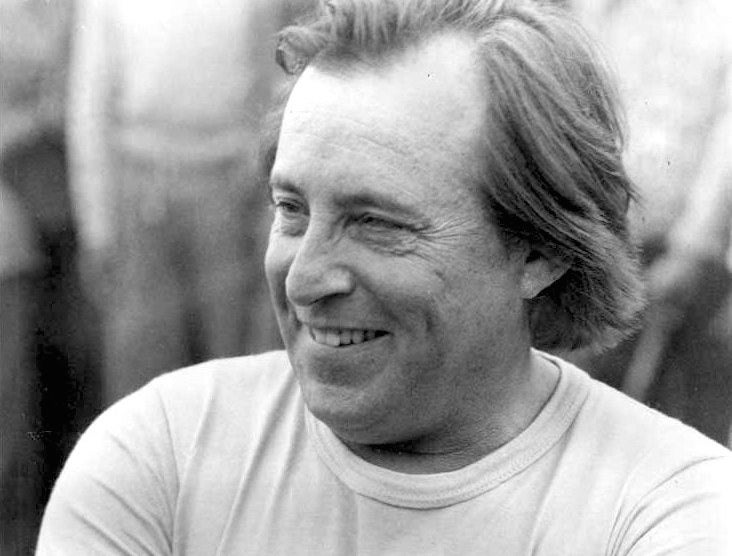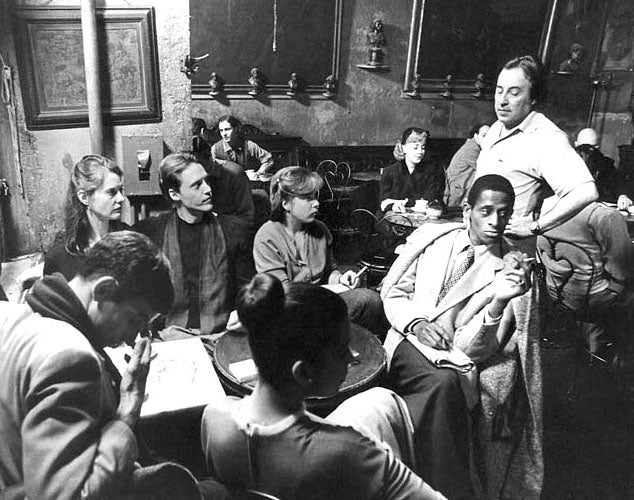
I first met filmmaker Paul Mazursky in 1974, when he conducted a master class at Boston University for the film students in the Graduate School of Public Communication. I had seen his break out sex comedy Bob & Carol & Ted & Alice (1969)in New Orleans in early 1970, when I had a few hours to kill. I thought the film was a bit of a cop-out, because no one actually has sex—but what did I know, being a freshman just beginning to frequent Bergman and Godard screenings at Ohio University? I missed Alex in Wonderland (1970), and would probably not have understood its homage to La dolce vita (1960)anyway, had I seen it. By the time Blume in Love (1973) came around, I was heading to film school and following Mazursky’s career. George Segal seemed to be such a hopelessly out of touch romantic (for a divorce lawyer) that the comedy rang true to life.
 In preparation for the master class, we were able to preview Harry and Tonto(1974), for which Art Carney so deservedly won an Oscar and Paul Mazursky was nominated as a screenwriter. Indeed, Mazursky almost always wrote his own scripts and was often his own producer. I remember really loving Harry and Tonto and it certainly contributed to my becoming a cat dad. Mazursky’s tale of a “senior citizen” who essentially becomes homeless demonstrated the director’s ability to meld comedy and drama, social critique and entertainment, as he had begun to do with Blume. In class, directing Carney and the cat became major topics of conversation. The setting was George Bluestone’s screenwriting class, but I have to admit I don’t remember too much else from the session. I did carry with me strong impressions of a relatively long-haired gentleman in his 40s who seemingly directed by being soft-spoken, while rising to a slightly theatrical tone to make his points. Directing actors was his strong suit and—besides Carney—Dyan Cannon, Elliott Gould, Jill Clayburgh, Lena Olin and Anjelica Huston all received Oscar noms under his direction. After all, Paul Mazursky was an actor, and would remain one his entire life, appearing in 76 roles, most recently in Curb Your Enthusiasm (HBO).
In preparation for the master class, we were able to preview Harry and Tonto(1974), for which Art Carney so deservedly won an Oscar and Paul Mazursky was nominated as a screenwriter. Indeed, Mazursky almost always wrote his own scripts and was often his own producer. I remember really loving Harry and Tonto and it certainly contributed to my becoming a cat dad. Mazursky’s tale of a “senior citizen” who essentially becomes homeless demonstrated the director’s ability to meld comedy and drama, social critique and entertainment, as he had begun to do with Blume. In class, directing Carney and the cat became major topics of conversation. The setting was George Bluestone’s screenwriting class, but I have to admit I don’t remember too much else from the session. I did carry with me strong impressions of a relatively long-haired gentleman in his 40s who seemingly directed by being soft-spoken, while rising to a slightly theatrical tone to make his points. Directing actors was his strong suit and—besides Carney—Dyan Cannon, Elliott Gould, Jill Clayburgh, Lena Olin and Anjelica Huston all received Oscar noms under his direction. After all, Paul Mazursky was an actor, and would remain one his entire life, appearing in 76 roles, most recently in Curb Your Enthusiasm (HBO).
In his first film role as Private Sidney, Paul Mazursky gave a memorable performance in Stanley Kubrick’s debut narrative feature, Fear and Desire (1953), which was restored years later when I was at George Eastman House—and which presages Full Metal Jacket (1987), but is clearly an apprentice work. Not being well versed in the Kubrick literature of the time (the early 1990s), I wasn’t aware of the fact that the film had been suppressed by Kubrick until my assistant curator, Paolo Cherchi Usai, “discovered” the lost film in the Eastman vaults.
Over the next decade, I watched in awe as Mazursky racked up a string of films that continued his search for adult themes mixed with comedy, an increasingly rare commodity in 1980s Hollywood: An Unmarried Woman (1978) brought Mazursky his third Oscar nomination for screenwriting and featured Jill Clayburgh’s luminous performance as a 30-something divorcee learning to cope with the fact that being a perfect housewife was not enough, when her husband wanted a younger model. Mazursky seemed to have a knack for contemporary social topics, as a number of obituary writers have commented. He continued that thread with Down and Out in Beverly Hills (1986) with Nick Nolte, which took aim at the injustice of Reaganomics.

But it was his Jewish themed films that increasingly caught my attention. I loved Next Stop, Greenwich Village (1976) because I was beginning an almost decade-long study of Jewish culture and history, and was reading Irving Howe’s The World of Our Fathers. Moscow on the Hudson (1984) with Robin Williams reflected on the massive influx of Russian Jews in New York in the late 1970s and early 1980s. Enemies: A Love Story (1989), a film about a polygamous Holocaust survivor in New York who is juggling three different wives, earned Mazursky his fourth Oscar nomination for screenwriting. Mazursky’s final film as director was Yippee: A Journey to Jewish Joy (2006), a documentary about an annual religious festival in Ukraine that draws 25,000 Hasidic Jews. I was fortunate enough to see that film with Mazursky himself, the last time I saw him.
I had seen Mazursky on occasion, since moving to Los Angeles, e.g. when he won a Los Angeles Film Critics Award for Life Achievement in 2010. In January 2013, Paul was supposed to appear at CSP Adult Retreat in San Diego with Sharon Rivo, my colleague from the National Center for Jewish Film. When Sharon had to cancel at the last moment, she asked me to take her place, so I had the opportunity to interview Paul on stage after he screened Last Stop, Greenwich Village and Yippee. By this point he was frail but lively, getting a kick out of telling jokes for the audience. My favorite story was how he met his “shiksa” wife in the Village in the 1950s and they were celebrating their 60th anniversary in a couple months. I remember him as a genuinely happy man.






 Mobile Navigation
Mobile Navigation

